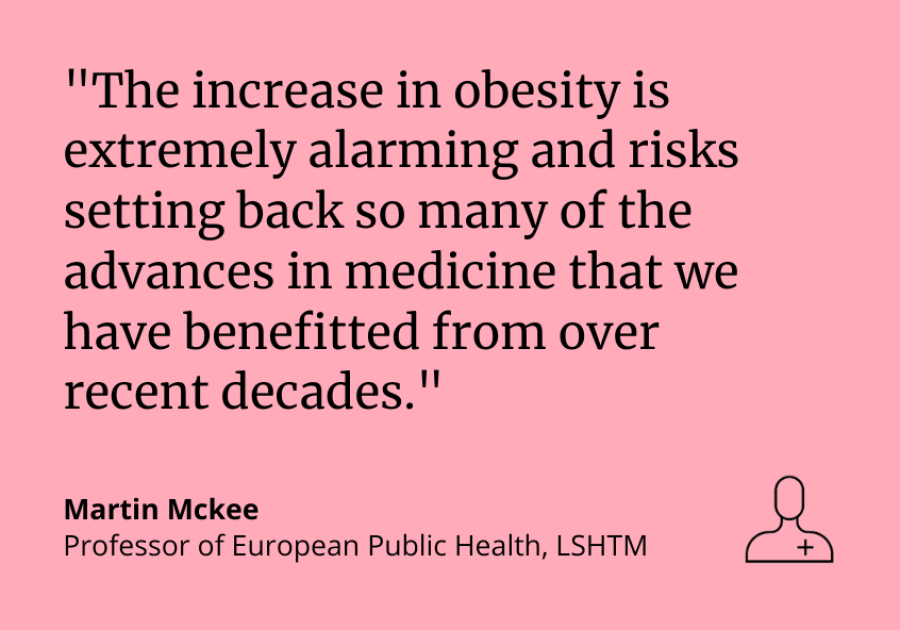Expert Comment – More than one billion people now living with obesity
1 March 2024 London School of Hygiene & Tropical Medicine London School of Hygiene & Tropical Medicine https://lshtm.ac.uk/themes/custom/lshtm/images/lshtm-logo-black.png
The total number of children, adolescents and adults worldwide living with obesity has surpassed one billion, according to a global analysis published in The Lancet.
These trends, together with the declining prevalence of people who are underweight since 1990, make obesity the most common form of malnutrition across the majority of countries worldwide.
The new study was conducted by the NCD Risk Factor Collaboration (NCD-RisC), a network of over 1,500 researchers and practitioners around the world including from the London School of Hygiene & Tropical Medicine (LSHTM) and Imperial College London, that provide rigorous and timely data on major risk factors for non-communicable diseases.
The research, conducted in collaboration with the World Health Organization (WHO), showed that obesity rates among children and adolescents worldwide increased four times from 1990 to 2022, while obesity rates among adults have more than doubled.
Martin Mckee, Professor of European Public Health at LSHTM, who contributed to the study, said:
“This analysis is the product of a remarkable international collaboration led by our colleagues at Imperial College.
“The increase in obesity is extremely alarming and risks setting back so many of the advances in medicine that we have benefitted from over recent decades.
“It also points to something very wrong with our food system, with its growing reliance on the industrial production of energy dense foods.
“This can only be tackled by concerted action that places health at the heart of discussions on policy in areas such as agriculture and trade.”
Island nations in the Pacific and the Caribbean, and countries in the Middle East and North Africa were countries with the highest combined rates of underweight and obesity in 2022.
Across the UK, the obesity rate for adults increased from 13.8% in 1990 to 28.3% in 2022 for women and 10.7% to 26.9% in 2022 for men. For children and adolescents, the obesity rate increased from 4.7% in 1990 to 10.1% in 2022 for girls and 4.3% to 12.4% in 2022 for boys.
In the USA, the obesity rate increased from 21.2% in 1990 to 43.8% in 2022 for adult women and 16.9% to 41.6% in 2022 for men. The obesity rate increased in children and adolescents across the USA from 11.6% in 1990 to 19.4% in 2022 for girls and 11.5% to 21.7% in 2022 for boys.
LSHTM's short courses provide opportunities to study specialised topics across a broad range of public and global health fields. From AMR to vaccines, travel medicine to clinical trials, and modelling to malaria, refresh your skills and join one of our short courses today.